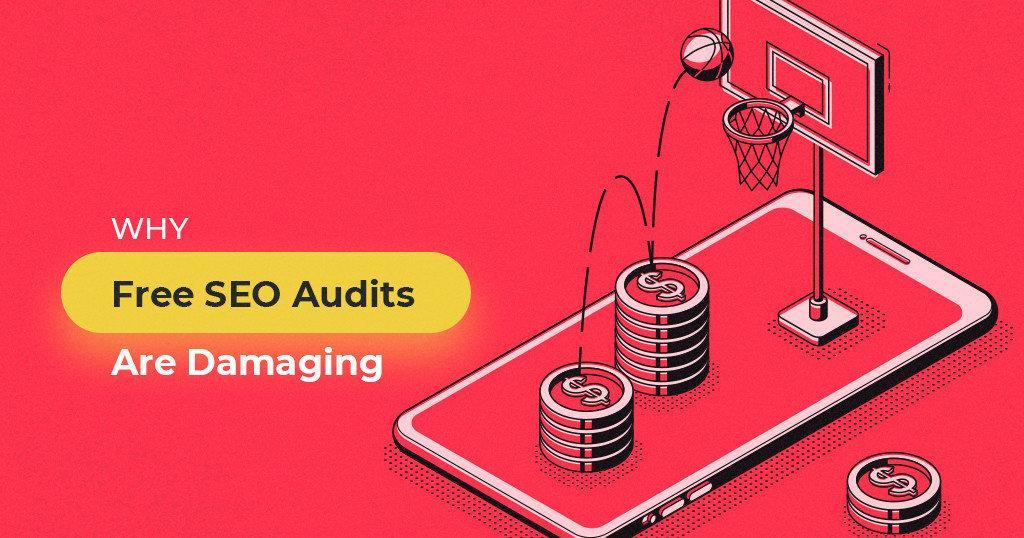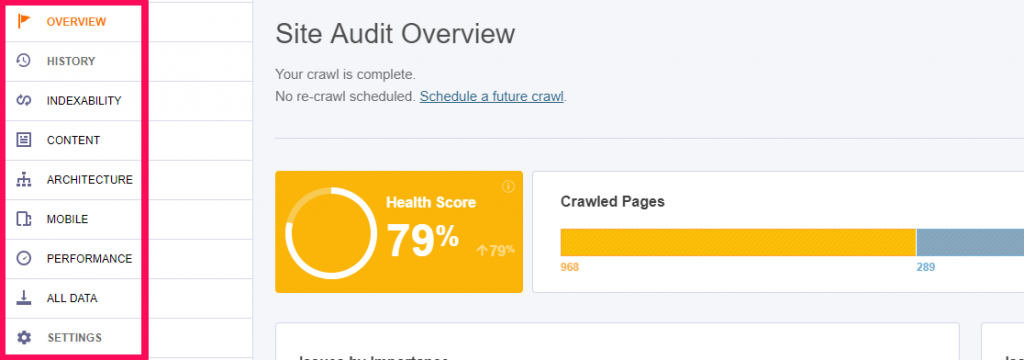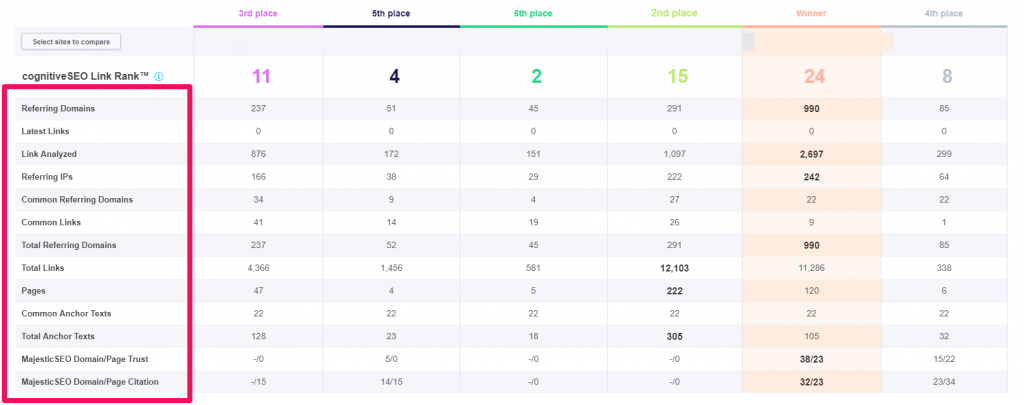If you’re active on social media groups or forums, you’ve probably seen plenty of free SEO audit offers. Ask an opinion about your site and the comment sections will quickly fill up with offers.
Hey, but it’s FREE, right? I mean, isn’t that great?
However… if we’ve learned something over the past years of digital marketing and SEO is that nothing good comes for free. Even if you do end up spending less money, you spend time instead and always risk doing a bad job.

What Exactly Is an SEO Audit?
What Should an SEO Audit Contain
Competitor research
Keyword Research
Indexation
Technical SEO & OnPage SEO Audit
Links Audit
Content Audit
General Overview
Prioritization
The Difference Between Paid & Free SEO Audits
Why You Should NOT Settle For a Free SEO Audit
In this article, I’ll tell you why it’s a good idea to rely on a high-quality tool or hire an expert when it comes to SEO audits, even if it costs you some money.
What Exactly Is an SEO Audit?
Like in finances, an audit is an inspection. In this case, it’s an inspection of your website. And no, in today’s terms we’re not only talking about SEO. The truth is that when you say SEO you say everything, because almost everything impacts SEO these days, from traditional technical SEO implementations and keywords to conversion rates, design and UX.
So what’s the purpose of this inspection? Well, you can view the audit as a doctor. The term comes from latin ‘auditus’ and it means ‘hearing’. So the ‘doctor’ ‘listens’ to your website to determine what’s wrong with it.
We will take a more detailed look at what a good audit needs but first, let’s define what a good SEO audit should contain.
What Should an SEO Audit Contain
Before we detail why free website audits won’t serve you any good, we first have to take a look at what a good SEO audit should contain. This isn’t necessarily a guide on how to do an SEO audit, but rather an outline of what it should contain and why it’s important that it contains those things.

A well defined SEO audit will contain the following:
Competitor research: You can’t really analyze something if you don’t compare it to anything. In SEO, everything is relative. Sure, you have a set of objective standards such as loading speed, user friendly URLs and not having malware on your site, but in the end, rankings are what matter.
You want to know where your site is positioned compared to other websites in your industry that are your direct competitors. You can’t compare your site to all websites, so you must choose wisely based on some criteria, such as which keywords they are targeting and how you are ranking on those keywords compared to how they are ranking.
Which takes us to our next point…
Keyword Research: You need to know your main keywords and which keywords you currently rank for. While the latter can be easily identified with a rank tracking tool, the former is usually up to a person to decide. How’s a tool going to decide what your business is selling? Of course, the tools can help you out with this a lot if they are good ones. If not, they can sink you more into the problem.
The audit should also contain a detailed keyword research, split into multiple, important categories of the website. Ideally, this should include future keyword opportunities and highlight the top performing keywords, which have a high search volume and are also highly relevant for the website/business.
While good keyword research tools are available, the prioritization process is very subjective and will always differ from situation to situation and website to website.
Indexation: An audit should analyze how well search engines index the website. Useful information can be extracted from the Google Search Console, but often it’s not enough to get an entire picture. If the search console doesn’t pick it up, the Google itself doesn’t pick it up.
Is the site using noindex tags where it shouldn’t? Is there an underlying issue that prevents the site from indexing? This is interconnected mostly with the next part I’m going to talk about, which is the technical and onpage SEO audit.
Technical SEO & OnPage SEO Audit: This is the most time consuming part of the website analysis. Free SEO Tools will only show you some basic aspects, such as wrong http to https redirect. Also, most SEO tools are actually analyzing only one page a time, so actually analyzing the whole site would take an eternity, not to mention that you would somehow have to centralize the data.
A technical audit should analyze a bunch of things, from title tags and meta descriptions to the presence of duplicate content, broken links and other important ranking factors search engines take into consideration.

A list of SEO issues that the CognitiveSEO Tool Analyses
More importantly, it should also analyze the structure of a website, looking at the internal linking and how that outlines which pages are the most important in the website. Depending on the type of website, the audit should contain different sections. For example, if a website is multilingual/international, the audit should analyze if the hreflang is implemented correctly.
It’s interesting how free audit tools work, because they analyze single pages instead of the entire site (which requires plenty of resources and time) but on the other hand they look at the entire site link profile instead of focusing just on that page.
Links Audit: Although people have been focusing less on link building and while it’s true that backlinks have become less important and harder to obtain over time, the truth is that they are still very important.

A list of factors the CognitiveSEO Tool uses when analyzing the link profile
At most, free tools can tell you an estimate of how many links a website has. However, they will never tell the complete story! You’ll need a lot of resources to gather all the information. It’s not just a number’s game.
Where are those links coming from? Quality sites? Relevant sites? Are they natural? Do they look spammy?
Content Audit: Now that you have determined the targeted keywords you should rank for and have ideally prioritized the most important technical issues that must be fixed, it’s time to take a look at the content.
There are some technical aspects such as duplicated content, which tools such as ours can help you figure out:

However, someone should also map the keywords to existing pieces of content for proper update within the title tags, headings and content and also think of new content ideas that could interest the audience, depending on which keywords people search more for in each market, which is something no technical SEO tool can do.
However, it doesn’t stop here. How should the content be written? Who will read it? These are questions that an SEO Audit should analyse.
General Overview: A tool can’t find everything. How does everything interconnect with social media marketing and offline marketing? Are there any mistakes the business does that might affect the overall performance of the website and business, even though they’re not directly connected to SEO? What about other things that tools can’t really analyse, like web design, or how to improve conversions?
Here’s an example: if your competitors have hundreds of positive reviews on local SEO listings such as Google MyBusiness (Maps) then you should encourage the owner to also get reviews. It could be as simple as asking the customers in the store to leave a review if they’ve had a good experience.
Prioritization: This is probably the most essential part. A complete audit (even the free ones) contain a lot of data. If it doesn’t tell you what to do first, you risk spending a lot of time on things that don’t really matter. There are SEO issues that are very hard to fix and take a long time, but they might not be critical. Wasting time there can cost you greatly.
For example, many will be quick to recommend blogging and link building. It’s true, content and links are very important. However, if the site has implemented hreflang or canonical tags wrongly, then fixing that should be a priority since it could end up in a bigger mess if more content is added.
Most importantly, a good SEO audit should contain SPECIFIC EXAMPLES and ACTIONABLE SOLUTIONS. Without them, it’s just theory.
Again, think of the doctor analogy. What if your doctor said “I think you might have a broken arm” or “You might want to try this medicine”? Seems kind of sketchy, doesn’t it? You’d probably not trust them much.
I’m sure you’d prefer they showed you an X-ray of your broken leg, showing exactly where the bone is broken and then tell you to put plaster right away, assisting you and showing you exactly how to deal with it in the future, as well as giving you some tips on how to prevent this whole situation from happening again.
As I’ve previously said, everything is subjective and will differ from site to site. Sure, you can have a general pattern or checklist you can follow, but you can’t analyze all sites the same way. Some target international languages, some don’t, they all run on different platforms, some are eCommerce others are informational, there are just too many factors to take into account for a general one button tool to figure out.
Now I’m going to ask you: Do you think anyone is willing to do all of the things mentioned above FOR FREE?
While for small sites that have just been created and have very small budget this might work, for bigger sites it has 0 use. If you have the flu, anyone can say drink some tea and stay in bed. If you’re ill (no traffic) but you don’t know what the problem is… you might need House M.D. to fix you.
The Difference Between Paid & Free SEO Audits
A good SEO won’t do website audits for free. They might take a look at your site to make a general impression, but they won’t spend time digging in too deep. Instead, they will make an offer for a detailed audit.
Why?
Audits are at the core of any search engine optimization strategy. They contour where you’re at right now and they dictate where you’re going to.
Let’s go back to the doctor analogy. A doctor has to find out what’s wrong with you right now but also tells you what you have to do to fix your problems. Getting mistreated will usually end up in lost time, more pain and empty wallets.
The problem with free SEO audits is that many people offer them in hope of hooking a client. They ‘discover’ basic issues that most websites have and then use them to enhance the fear factor in order to sell their services.
In the end, the truth is that fixing minor issues doesn’t pay off the bills. Rankings & sales do.
Most free SEO audits out there lack essential things such as direction, goals and target audience. Without understanding that, the chances of your website increasing in rankings are dim.
Even with paid SEO Tools, you’ll still need someone who knows how to analyze the data and recommend specific actions.
But since so many people have started using these free tools and searching for them, it was inevitable that the market would satisfy the demand. A high number of free SEO tools started to wonder around the internet.
The truth is that 99.9% of the free audit offers you will get for your site are probably done using free, one click SEO audit tools. You put in the URL of a website, you click a button and it analyzes your website.
I have nothing against these tools. But if someone gives you for free something that you can get for free anyway… then I have a little problem.
These tools might be useful for a small, freshly created website with very small budget. It’s good for example to know that you need a good server or that you shouldn’t upload big image files. But the owner will usually be more than happy to do the research himself in order to save money. However, I highly believe we should all do what we’re best at, so if you don’t know what you’re doing, you’re better off hiring an expert!
Free SEO audit tools can come in handy. However, on the long run, if you want to do something serious with your business and website, they are often misleading.
Here’s why, specifically:
Let’s say you want to do an SEO audit and you search for ‘free audit tools’. You decide to test multiple ones, because they’re free. Most of them, if not all, will eventually give a result similar to this one:

How Most Free Website Analysis Tools Work
The score usually analyses one page instead of taking a look at the entire site. If you get 30% score, you’ll see 100% as your goal. However, remember that 100% scores don’t pay the bills (at least not for you, but they can pay it for the ones offering you that free audit).
It’s usually the same with all free tools. You might know for example that PageSpeed Insights is often used to determine the technical status of your site. However, the tool often focuses on things that aren’t the most effective for SEO.
For example, caching external sources is not possible, yet the tool still drops your score if you have external resources that are uncached, even from Google itself (such as Analytics Tags). Another popular thing is to use modern file types for images, although many browsers and platforms don’t fully support them yet.
So an SEO might hook you in with a free audit, then tell you your score is 30% and that you need SEO services. It fixes most of the things (which by the way, your niece or nephew can do) by installing some plugins on your site and then shows you a new 90% score, green lights everywhere. That’s one hour of work and it should be paid accordingly!
Having scores to determine a website’s ‘health status’ isn’t all that bad. In fact, we have one of our own:

However, in the left side you can see how the tool has separate sections for things such as Indexability, Content, Architecture and Performance. There you’ll find detailed explanations on what exactly you should prioritize and how you can fix the issues.
Most free tools out there do the big mistake of simply counting the number of backlinks and rate your link profile after that.
For example, if your site has 0 backlinks, your offsite score might be 0. But if it has 1000 links, it will say that you have good activity and that your link profile is awesome.
That’s very misleading!
What’s actually important is how qualitative those links are. Are they coming from relevant domains? Are they spammy? That’s when a tool like the Unnatural Link Detection tool comes in handy!

But analyzing links takes time and resources. You have to crawl the web and use servers and tons of processing power to come up with the results and not have to wait for months to get them. That’s why, unfortunately, you won’t get it for free (only a trial, which you can try).
And even with this tool, you’ll still have to analyze the results and figure out what the issue actually is. What led to this situation? How can it be avoided? Should you disavow the links or focus instead on building more quality ones?. These are all answers no tool can give you directly and accurately.
If someone’s going to give you a free recipe for your site to grow #1, I’d bet they won’t do it for free.
In the future, it’s possible that AI tools and very advanced software will be able to give you the perfect solution to getting to #1. It’s possible that it will choose the right competitors, analyze and compare the rankings, come up with the best keywords and content ideas, fix all technical issues in a blink of an eye and then even give you a massage.
However, I highly doubt you’ll find that for free and, by then, Google will probably be even more advanced and complex.
Why You Should NOT Settle For a Free SEO Audit
Free SEO audits are like Romanian mechanics. They all say something about your car for free, but none of what they say is actually the problem and they end up replacing unnecessary things over and over again. Paid SEO audits are like German mechanics. They won’t say anything until you pay them fairly, but once you’ve paid they tell you the exact problem and fix it.
Here’s why you shouldn’t choose to waste your time with free SEO audits:
You can probably do it yourself in less than 1 hour
It distracts you from what’s actually important (better rankings)
It wastes you time (you’ll probably end up with 10 free SEO audits)
You risk actually harming your site (i.e. removing important * useful JS for 100% score on the tool)
It can cost you more on the long run
If you’re settling for the wrong goals, you will waste time hoping for rankings. Meanwhile, you’ll lose all the traffic and sales you could get if properly auditing your site. You will focus on things that are not actually important. You will obsess over getting 100% which means nothing for your site. I could show you plenty of sites that rank high and get traffic and sales but have low scores on free SEO tools.
Most of the time, loading times is what’s important. You can have big images and plenty of JS, as long as your site loads in under 1-3 seconds, you’re probably good go. For example, what would a photographer say if you ask him to compress the images on his site?
Paid SEO Audits & Tools might cost you less on the long run!
There’s something you can do to protect yourself from these free offers. You will easily differentiate people that actually know what they’re doing from people that just want to make a quick buck.
Here’s what you have to do:
Before asking any SEO consultant for an opinion, fix the basic stuff yourself. Even if you do it yourself, is not free. You’ll spend the time, so it’s not actually free.
However, this way you can fix some of the most basic things. For example, image compression. If you get a very low score on tools like Google PageSpeed Insights, GT Metrix or high loading times on tools like PingDom Site Speed Test, chances are high that you’re using big images on your site.

The fix is as simple as installing an image compression plugin or downloading all your images from your server, compressing them using tools like Tiny PNG and then uploading them back (keep the same file names and also backup your site before you make any changes).
All other problems there are usually fixable with some plugins. Cache issues? Add a cache plugin. Minify issues? Add a code minification plugin. You’ll never get 100% score and you shouldn’t focus on that. For example, sometimes you really need to use external resources, such as JS codes for e-mail marketing or advertising. If they aren’t cached, you’ll still get a lower score, when in fact, your site doesn’t have that issue.
This way you can protect yourself from SEOs that are just trying to lure you in with the Free Audit bone and actually pick a good SEO.
If those SEO tools mentioned above hit scores of 90% plus, chances are you will demoralize them. If your score is 26%, they will be able to say “You need to fix this and that and that and this is how much it hurts your website and blahblah”.
However, if someone offers you a detailed, 40 pages manually written PDF file on which they’ve spent tens of hours of research, then you should probably take the offer. Although I highly doubt that it’s going to be for free.
If you’re an SEO consultant, stop doing free audits! Learn to do a serious SEO audit that will actually help your clients.
Small business owners which don’t have resources will usually take the deal if the audit is professionally made. They need search engine optimization services anyway and you need to audit the site anyway before you know what you should do. As for bigger companies, they usually have their own team for execution so the audit will actually be the only thing they really need.
If you want something to assist you in auditing a website, you can try the CognitiveSEO Package. It contains all the required tools for a good audit, from Keyword Research to Technical Audit, Link Audit and Rank Tracking tools. Not only that, but you’ll also be able to schedule reports directly to your clients’ e-mail to notify them about the progress.
One of our team members will assist you in analyzing your website to determine exactly which steps will actually help you improve your rankings.
Conclusion
SEO Audits are an essential part of your SEO & Marketing Strategy. You should always audit your website from time to time to make sure things are good and going to the right direction.
Free website analysis & SEO audit tools can help you make a quick overview on the website, but they won’t actually help you define your strategy.
What’s your experience with free SEO tools? Do you use them? How much do they help to positively impact the rankings of your clients’ websites in the Google search results? What do you include in your SEO audits? Do you give them for free? Let us know in the comments section!
The post Why Free SEO Audits & Tools Can Actually Cost You More On The Long Run appeared first on SEO Blog | cognitiveSEO Blog on SEO Tactics & Strategies.
Read more: cognitiveseo.com
